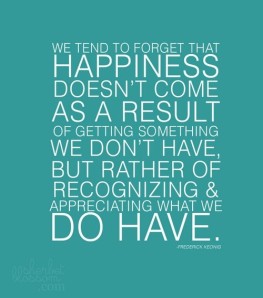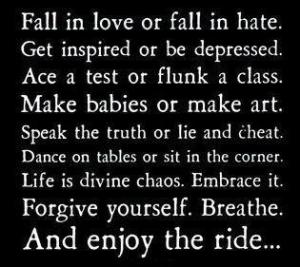This post was originally posted by The Bulletproof Musician
We are typically led to believe that being “nervous” is a bad thing. Indeed, most of the advice I’ve ever heard has been aimed at reducing anxiety. Over the years, I tried everything I could to get rid of the unpleasant feelings associated with performance anxiety. I tried eating bananas, drinking chamomile tea, imagining the audience in their underwear, sleep deprivation, practicing more, taking various supplements, and even trying to convince myself that it didn’t matter how I played. None of this, of course, took the anxiety away or did much to help me perform any better.
From my work with sport psychologist Dr. Don Greene when I was a graduate student at Juilliard and my own doctoral training in performance psychology, I’ve come to understand that anxiety itself is not the problem. The problem is that most of us have never learned how to use adrenaline to our advantage. By telling ourselves and our students to “just relax,” we are actually doing each other a disservice by implicitly confirming that the anxiety we feel is bad and to be feared. I soon learned to welcome the rush of adrenaline and to use that energy to power my performances, and to perform with more freedom, conviction, and confidence than I ever imagined possible.
The big question, of course, is how do you transform anxiety from a liability to an advantage? Before we talk about this, we first need to understand some basics about what happens to our mind under stress.

Left Brain vs. Right Brain
Our brains consist can be thought of as being comprised of two basic regions – the left hemisphere and the right hemisphere. Admittedly, it is an oversimplification of the immense complexity of our brain to imply that the left and right hemispheres are completely independent of one another, but this is a very effective model when it comes to understanding optimal mental states for performance.
Left brain thinking is associated with words, numbers, logic, analysis, criticism, rules, details, planning, and judgment. Conversely, right brain thinking is associated with sounds, images, patterns, kinesthetic or sensory input, emotions, the “big picture,” free association, and creativity.
Based on this information, which mode of thinking seems most conducive to effective practicing? Did you say left brain? Correct! Now, which seems most conducive to dynamic, inspired, and artistic performances? Right brain, exactly! Unfortunately, we often do the opposite. In the practice room, we have a tendency to practice somewhat mindlessly, merely repeating passages over and over until they sound better, making corrections, but doing so almost unconsciously. However, as soon as we walk on stage, we tend to get flooded by left brain over-analytical thinking, criticism, excessive planning, and so on, which only serves to lead to a pre-occupation with technical details and an inability to play as freely and automatically as we are capable. Are you familiar with the phrase “paralysis by analysis?” This is exactly what happens when we know that our every move and sound is under close scrutiny by others. The opposite of this paralyzed state is often referred to as “flow” or “the zone,” where everything just seems to “click” into place and our playing is easy, free, and effortless.
How do we make the shift from left brain thinking to right brain thinking and get into “the zone?” One very effective tool is called Centering.
Centering
Centering is what sport psychologists call a pre-performance routine. It was designed in the 1970′s by the renowned sport psychologist Dr. Robert Nideffer, and adapted for performing artists by Olympic sport psychologist Dr. Don Greene. Centering is a highly effective means of (a) channeling your nerves productively and (b) directing your focus even in extreme situations. Once mastered, it is very quick and highly effective, and will ensure that you begin each performance with a bang (in a good way)!
There are seven steps, each specifically designed to move you progressively closer to right brain quiet, focus, and poise, and take you further away from left brain fears, doubts, and self-criticism.
Step 1: Pick Your Focal Point
Select a fixed point in the distance, somewhere that feels comfortable. This point could be on your stand, the ground in front of you, or on the back row of the hall, but wherever it is, ensure that your focal point is below eye level. A focal point helps to minimize distractions and avoid the temptation to engage in left-brain thinking.
Step 2: Form Your Clear Intention
A clear intention is in essence, a specific goal statement. What do you intend to do when you step out on stage? How exactly do you intend to sound? What, precisely, do you intend to communicate to the audience?
Use assertive, declarative language, such as “I am going to perform brilliantly, with passion and clear dynamic contrast,” as opposed to “I hope to play well.”
Do not use the word “don’t”. Doing so will only put the negative picture in your head and generate fears and doubt. For instance, when you say to yourself “Don’t miss the high note”, what’s the first image that pops into your mind? Missing the high note, right? What image pops into your mind when you tell yourself “Nail the high note?” Learn to focus on what you want, not on what you don’t want.
Step 3: Breathe Mindfully
One of the most powerful techniques for reversing the stress response involves learning how to breathe diaphragmatically. When stressed, our bodies have a tendency to revert to shallow, rapid, chest breathing. Doing so keeps us in fight or flight mode. Diaphragmatic breathing is the most biomechanically efficient way to breathe, and furthermore, is conducive to activating what’s called the parasympathetic nervous system response which is our body’s antidote for the fight-or-flight state.
Step 4: Scan and Release Excess Tension
One of the most detrimental consequences of performance stress is muscle tension. As our thinking becomes more negative, our muscles tend to get tighter and less facile. And not just any muscles, but often the ones that we most need control over!
Scan your muscles from head to toe as you continue to breathe slowly and deeply, one muscle group at a time, releasing tension on the exhale. There is a short video clip on YouTube which illustrates an exercise that tests your ability to truly relax your muscles on command.
If you develop a more acute awareness of muscle tension even in the practice room, and are able to control the degree of tension you experience in your playing, you will be able to retain much of this ability during a performance and will feel much more in control.

Step 5: Find Your Center
Are you familiar with the martial arts concept of ki or chi? In Eastern philosophy, chi is described as being one’s “life force” or energy. There is a specific location in our body where the energy tends to congregate, which is essentially our center of gravity. If you have ever observed the movements of a great martial arts master or even some athletes or dancers, you will notice a presence, grace, and balance about them regardless of their size or physical dimensions. Not only is the feeling of being centered a very calming and reassuring one, but the mere act of searching for you center will quiet your left brain activity.
Step 6: Repeat Your Process Cue
There is a tendency when stressed to hyperfocus on minute details. This may be highly desirable in the practice room, but can be paralyzing on-stage. The solution is to focus on a right-brain process cue, in essence, a reminder of what it sounds, feels, or looks like to produce the exact sounds you want.
There are two possible ways to do this. One, you could brainstorm and experiment with words that cue up the sound/feeling/images of producing the beautiful sound, clean articulation, or solid intonation that you wish to produce. Examples of such words are smooth bowing, light fingers, even shifts, fluid, powerful, calm, or easy. It’s not the word that is important, but the resultant mental sound/feeling/image of performing exactly the way you want to that is key.
Thus, a second way to do Step 6 is to avoid using words altogether and merely hear, feel, or see yourself performing exactly as you wish.
Step 7: Direct Your Energy
By the time you have gotten to this step, you will have made the shift into a more quiet and focused mental state conducive to performing your best. You will have taken the edge off of your nerves, and in this last step you will channel the remaining energy that remains into a dynamic and inspired performance. This is how you use the energy instead of trying to get rid of it.
Do a quick internal search for all of the energy that you feel in your body, and feel it gathering at your center. I often imagined my center and energy being somewhat like those plasma lamps that are sold at stores like The Sharper Image (Google “plasma lamp” if you don’t know what I’m referring to). Now, direct that energy upwards, through your torso and neck, into your head, and blast it out through your eyes or forehead like a laser beam at the focal point you identified in Step 1. Think of this beam as a conduit for your music and the energy that will convey your clear intention to the audience.
This may sound a little hokey to some, but this energy is real. Have you ever met someone incredibly intense, who perhaps invades your personal space a bit, and looks at you so intensely that you feel uncomfortable and almost feel that they can see into your head and read your thoughts? That’s the same sort of energy I am talking about. Instead of trying to get rid of the energy adrenaline provides by relaxing or taking beta blockers, you can learn to use it, channel it into your performance, and take your playing to a whole new level!
Practicing Centering
When you first try to Center, it may take several minutes to go through all of the steps. If you practice this for 10-15 minutes per day, however, and stick with it, you will begin to notice a difference within a week or two and find that you can center in 5-10 seconds. Some notice a difference within days. The key, like anything else, is consistency and persistence.
Many, if not all, of these elements can be shared with even the very youngest students, whether they get nervous before performances or not. Not as a means to reduce anxiety, but as a way to improve focus and clarity of musical intentions. Many of Centering’s aspects can even be tremendously helpful in practice sessions, to ensure that one remains focused on the task at hand (instead of reinforcing bad habits via mindless repetition).
With a little time and practice, I’m certain that Centering will change your approach to performing and practicing just as it did for me and the many others who have learned this process.
As the saying goes, “You can’t stop the waves, but you can learn to surf.”
p.s. If you’d like more help learning how to “surf”, check out Beyond Practicing – an online performance enhancement course that will provide more in-depth training on Centering and six other key skills that will help you become the kind of player who thrives when the pressure is on.
Comments Off on How to Make Performance Anxiety an Asset Instead of a Liability


































